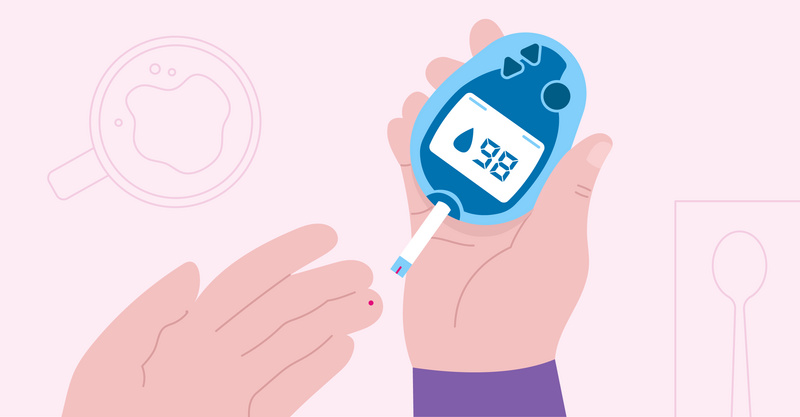Key Points
- Detached retina is a serious eye condition that can result in permanent vision loss if not treated promptly.
- Symptoms of a detached retina include floaters, flashes of light, blurred vision, darkened vision, and loss of peripheral vision.
- Major causes of retinal detachment are aging, diabetes, and eye injuries. Regular eye exams can help diagnose the condition early.
- Treatment options for a detached retina include laser surgery, cryopexy, scleral buckling, vitrectomy, and pneumatic retinopexy.
- Preventive measures include regular eye exams, using eye protection, managing diabetes, and seeking treatment for inflammatory disorders.
Possible Symptoms for Detached Retina
The retina is a thin layer of tissue located at the back of your eye. Your retinas help supply oxygenated blood to the tissues in your eyes. A detached retina occurs when these layers of tissue pull away from their normal position.[1] Left untreated, a detached retina can deprive your eyes of oxygen. In some cases, retinal detachment may cause permanent vision problems.[1]
Symptoms of retinal detachment include:[1]
- Floaters, or tiny specks, in your vision
- Flashes of light
- Blurred vision
- Darkened vision
- Loss of peripheral vision
A detached retina usually doesn't cause any pain, but it may trigger unexplained changes in your vision. Report any vision changes to your doctor right away. If you have a detached retina, prompt treatment can help prevent vision loss.[1]
Top 3 Detached Retina Causes
1. Aging
The inside of your eyes is filled with vitreous fluid, a gel-like substance that helps maintain the structure of the eye. As you get older, this fluid may become thicker or thinner. These changes can increase your risk of retinal tears, which allow vitreous fluid to spread into the space behind the retina. Over time, retinal tears can contribute to retinal detachment.[2] Routine eye exams can help your doctor diagnose this problem early.
2. Diabetes
Diabetes is a serious health condition that sometimes causes permanent eye damage.[2] If you have poorly controlled diabetes, you may develop scar tissue around your retinas. This scar tissue can eventually lead to retinal detachment.[1]
Managing your diabetes reduces your risk of vision loss. Your medical team can help you explore treatments to bring your blood sugar under control. Regular eye exams are also a vital part of protecting your vision.[2] People with diabetes may need to see their eye doctor several times a year.
3. Eye injuries
Some cases of retinal detachment are caused by injury to the face or head. Sudden trauma can cause the retina to scar, tear, or detach from the eye.[1] Seek medical care right away if you experience vision changes after a head or eye injury.
4 Ways to Prevent Detached Retinas
1. Get regular eye exams
Eye exams are an essential part of protecting your vision. Routine exams help your eye doctor detect problems early on. Prompt diagnosis and treatment can help prevent permanent damage to your eyes.[3]
Most people benefit from yearly eye exams, but if you are older, have a history of vision problems, or have certain chronic conditions, you may need to see your eye doctor more frequently. Your doctor can help you determine how often you need eye exams.
2. Use eye protection
Eye injuries are a common cause of vision loss. You can protect your vision by using safety goggles when using power tools or industrial equipment. Sports goggles can also help protect your eyes during athletic activities. Your eye doctor can provide more guidance on choosing the right type of protective gear.
3. Manage your blood sugar
Diabetes can sometimes cause permanent vision loss. If you have diabetes, work with your medical team to bring your blood sugar under control.[2] You should also see your eye doctor frequently for screenings and preventive care and report any vision changes to your doctor right away.
4. Seek treatment for inflammatory disorders
Chronic health conditions that cause inflammation may increase your risk of vision problems. If you have an inflammatory disorder, your doctor can help you manage your symptoms. Medical treatment may help reduce inflammation and prevent retinal scarring.
Possible Detached Retina Treatment Options
1. Laser surgery
Laser surgery can help repair retinal tears that haven't yet caused a detached retina. This type of surgery uses a targeted laser beam to attach the retina to the underlying tissue.[4]
2. Cryopexy
Like laser surgery, cryopexy is often used to fix minor retinal tears. Cryopexy uses a freezing probe to secure the retina to the eyewall. This treatment can help prevent fluids from passing into the retina.[4]
3. Scleral buckling
Scleral buckling can help repair a detached retina. During this procedure, your surgeon attaches a band of silicone or plastic to your eye. Next, your surgeon uses this device to push your eye inward, reattaching the retina to the eyewall.[2]
4. Vitrectomy
Vitrectomy is sometimes used alongside scleral buckling. During a vitrectomy, your surgeon removes the vitreous from your eye and replaces it with a silicone mixture. This mixture is then used to push the detached retina back onto the eyewall.[2]
5. Pneumatic retinopexy
During pneumatic retinopexy, your surgeon injects a bubble of gas into the vitreous. This bubble can help push the retina back onto the underlying tissue[2]. As with similar procedures, pneumatic retinopexy is sometimes used alongside other treatments. Using several surgical techniques can help your surgeon achieve the best possible results.[1]
Questions Your Doctor May Ask About Detached Retina Treatment
- Did you recently experience a head injury?
- Were you recently involved in an automobile accident or sports injury?
- Have you undergone any eye surgeries in the past?
- Does anyone in your family have a history of retinal detachment?
- Do you have any chronic health conditions, such as diabetes?
Detached Retina May Also Be Known as:
- Retinal detachment
Frequently asked questions
What is a detached retina?
A detached retina is a condition where the thin layer of tissue at the back of the eye pulls away from its normal position, potentially leading to permanent vision loss.What are the symptoms of a detached retina?
Symptoms include floaters or tiny specks in your vision, flashes of light, blurred vision, darkened vision, and loss of peripheral vision.What causes a detached retina?
The major causes of a detached retina are aging, diabetes, and eye injuries.How can a detached retina be diagnosed?
Regular eye exams can help diagnose a detached retina early, before it causes significant vision loss.How is a detached retina treated?
Treatment options include laser surgery, cryopexy, scleral buckling, vitrectomy, and pneumatic retinopexy.How can I prevent a detached retina?
Preventive measures include regular eye exams, using eye protection, managing blood sugar if you have diabetes, and seeking treatment for inflammatory disorders.Can diabetes lead to a detached retina?
Yes, diabetes can cause scar tissue around the retinas, which can lead to retinal detachment. Managing your blood sugar levels is crucial.Can eye injuries cause a detached retina?
Yes, eye injuries can cause retinal detachment. Using eye protection can help prevent this.
Solv has strict sourcing guidelines and relies on peer-reviewed studies, academic research institutions, and medical associations. We avoid using tertiary references.









